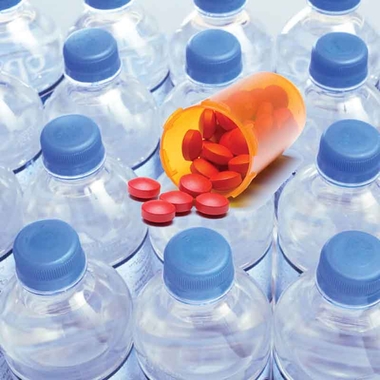Plan. Prepare. Stay safe

by Mary Turner
HIV/AIDS Medical Columnist
Recent catastrophic weather events remind us that bad things can happen even if we anticipate and plan for them. While it’s highly unlikely that Oklahoma will ever be hit directly by a hurricane, we have our seasons for fire dangers, tornadoes, ice storms, floods and of course, earthquakes.
While such events may only be a nuisance much of the time, those who are directly affected may be on their own without power or help from government and community agencies for quite some time. To help ensure your safety and that of loved ones in such an event, it’s important to plan for a worst-case scenario and to keep a preparedness kit.
I’m not talking about anything you might have seen on a prepper’s reality TV show where you must build massive underground structures and stockpile sardines and toilet paper for years. I’m talking about a three or four-day supply of essential things that you might need until help can get to you.
If you are HIV+, have AIDS or any other chronic illness or combination of chronic illnesses or have a disability or other condition that might place your life at a greater risk, it is especially important to have a plan and resources to help yourself.
Water is essential.
We may survive an event for several days without food, but we must have water. It is recommended that people allow one gallon per day per person.
Your medicine is also essential.
Keep about a week’s worth of prescription meds together along with your health insurance and contact information for all your health care providers in a waterproof container. Be sure to remember any devices (glucose strips and meter, syringes etc.) that you will need to administer your medications (check expiration dates in kit intermittently). Information about your condition is also helpful.
While we all like to think we’ll keep our wits about us and be able to give this information to first responders, we must remember that we might be injured, traumatized or weakened by the event, especially if we are on our own for a few days.
Sturdy, thick-soled shoes are important for most events because we need protection for our feet. A first-aid kit is helpful if you have any kind of wounds that need to be cleaned and bandaged. A whistle is also recommended as a staple in your kit because you may not be able to call out loudly enough for someone to hear you, but responders probably can hear a whistle.
Of course, you also want to keep your cell-phone charged and have your charger with you. You might also keep an older phone charged and in your car or other area of your home. Even phones without a service plan can call 911 if they are charged.
Lastly, be a good neighbor. If you have survived the event and are okay, look and listen for those around you who might need help. This doesn’t mean endangering yourself. Contacting first responders and directing them to those in need is as important or more so, than trying to rescue someone yourself, especially if you don’t have the skills or means to do so.
Plan. Prepare. Stay safe.
Copyright The Gayly – October 6, 2017 @ 7:25 a.m. CDT.





